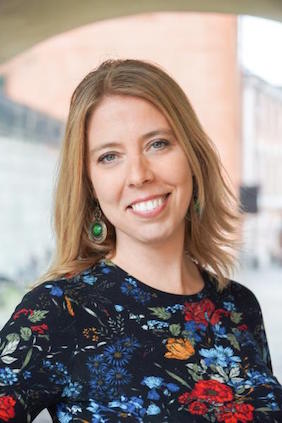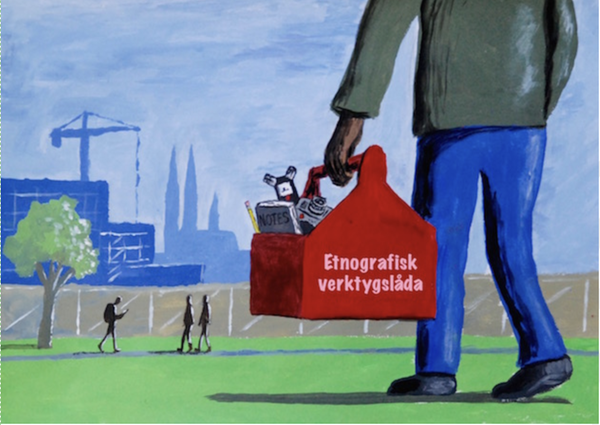Karin Eriksson-Aras
Tools to catch the desires of inhabitants

Karin Eriksson-Aras.
Reaching out to inhabitants in order to know how they want to live is difficult for municipalities. But there might be a solution; ”that we develop a methodological toolbox that they can use, says ethnologist Karin Eriksson-Aras.
Karin Eriksson-Aras have, along with anthropologists Katarina Graffman and Mats Utas, received money from UU Innovation in order to conduct a pilot study. The idea is that this pilot study will result in a larger project in the future.
The researchers have spoken with representatives of Uppsala municipality, who say they experience frustration related to the fact that it is so problematic to find out what the inhabitants themselves think of various new types of residential areas.
- It can be difficult to reach out to people with citizen dialogues or attitude polls, if you really want to understand how citizens live their lives, and what they need to feel good in their municipality, says Karin Eriksson-Aras.
Through urban development, Uppsala municipality wants to contribute to safety and feelings of community in new areas, with reduced segregation and increased equality. New housing concepts such as collective housing are being tested, and in this situation it is of course interesting to know what the people who settle in these new homes - and what people living near them - really think. The municipality is trying to follow up on this, but it is easier said than done.
- It is not a matter of lack of will on the part of the municipality, but it is more about the public sector's special conditions with political governance in four-year cycles and the regulation around authorities, so they may not really reach what they want to access, Karin Eriksson-Aras explains.

Therefore, she and the other researchers intend to develop a toolbox - perhaps not in a literal sense but close to it - a concrete set of ethnographic methods which the municipality should be able to use in order to reach out to inhabitants.
- And which methodological tools it will contain is something that we will start to investigate in the pilot study, by conducting a number of interviews with those responsible within the municipality, people who work in urban development, she says.
Moreover, the toolbox could be a long-term solution. Karin Eriksson-Aras’ view is that research projects often become very theoretical and that those intended to benefit from the results do not really benefit much in the long run, since they do not know how to apply the results next time.
- And then you need help in the next step as well. Here is a toolbox instead, that they can use practically and bring forth even in the next project.
Perhaps new forms of housing can contribute to more collective community and social safety than more conventional forms of housing, and the researchers’ hope is that ethnological and anthropological tools can be used to find out.
Text and illustration: Alexander Öbom, year 2020
